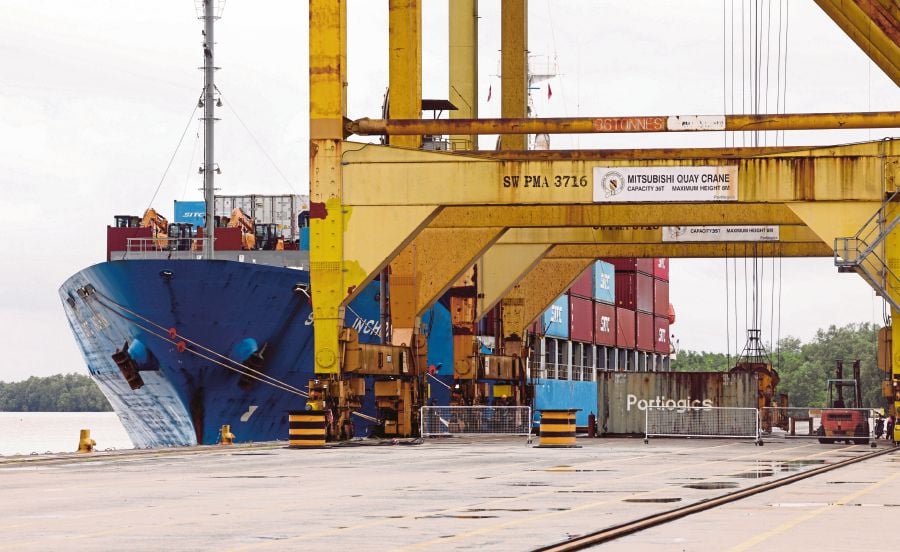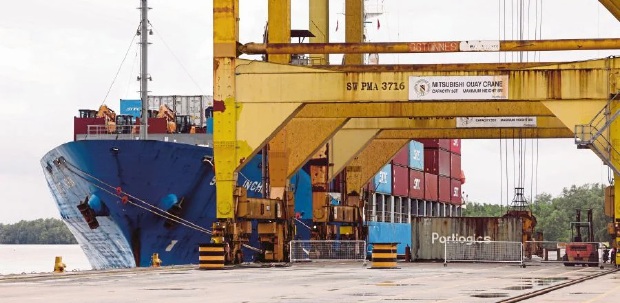TRANSPORT Minister Anthony Loke announced on March 1, apparently at the request of Sarawak, the end of the state's exemption from the nation's cabotage policy, which was imposed in 2017.
The exemption for Sarawak and Sabah was the result of a Sabah-initiated campaign which Sarawak went along with. Sabah remains the only state where the exemption is still applied.
The campaign, like many things these days, was based on the mistaken assumption that the cabotage policy was the root of many evils besetting the two Borneo states.
It is, of course, never such a thing. As many defending the policy have often cited, it is a requirement imposed by the vast majority of nations that domestic shipping will be the preserve of a nation's domestic shipping lines.
Similarly, with domestic air routes, it would be foolhardy were Malaysia to allow foreign airlines to compete with local ones plying between destinations within the country!
Unless foreign countries allow Malaysian airlines to serve destinations within their countries, they will think us insane to unilaterally open up our domestic air routes to foreign airlines just as we did with lifting cabotage for shipping between Peninsular Malaysia and Sarawak and Sabah.
Various reasons were forwarded to support the lifting of cabotage requirements for Sarawak and Sabah.
These included the unfounded argument that cabotage was the reason why goods are generally dearer in the Borneo states compared with the peninsula. Another was that cabotage stifled the growth of ports in the two states into transshipment hubs of any consequence.
In explaining the reinstatement of cabotage, Sarawak Transport Minister Datuk Seri Lee Kim Shin said: "The rise in price of goods is not due to the imposition of the cabotage policy but it was contributed by other components of the transportation cost such as land, bunkering and port handling charges which needed to be addressed.
"The liberalisation of the cabotage policy has no impact on reducing the cost of doing business in Sarawak.
"The liberalisation of cabotage policy also has led to the decline in the demand for cargo for Sarawak shipping companies to transport, which resulted in loss of revenue that forced them to downsize their operations, shipping fleet and number of employees."
Moreover, Sarawak has its own domestic shipbuilding and shipping industry to protect.
As Lee noted: "This (lifting of cabotage exemption) will create more spin-off effects to the economy by supporting the domestic shipping ecosystem and increasing the involvement of local shipping companies and related services as well as providing more jobs for local seafarers and other logistic supply chain services."
The Sarawak minister's rationale for re-imposing the cabotage policy reveals the full extent of the economic damage to the state by this own-goal.
In its defence, when Sarawak first opted to join Sabah in requesting for exemption from cabotage, then state minister, the late Tan Sri Dr James Masing did say the state government would monitor if the exemption met the desired objectives.
That it has taken this long for the state authorities to realise the damage done is regrettable.
It is hoped this is a lesson learnt that the state government needs to be extremely careful to weigh all the implications before deciding on any such disruptive moves in future.
As regards to the aspirations of ports in Sarawak and Sabah to be regional transshipment hubs, it perhaps bears repeating that main shipping lines will base their decision to berth in ports in either state on economic considerations, the most paramount of which will be the volume of cargo that a port generates, both incoming and outgoing.
Exemption from cabotage will be, at best, a minor consideration, if at all.
There are no quick fixes.
The writer views developments in the nation, region and wider world from his vantage point in Kuching






